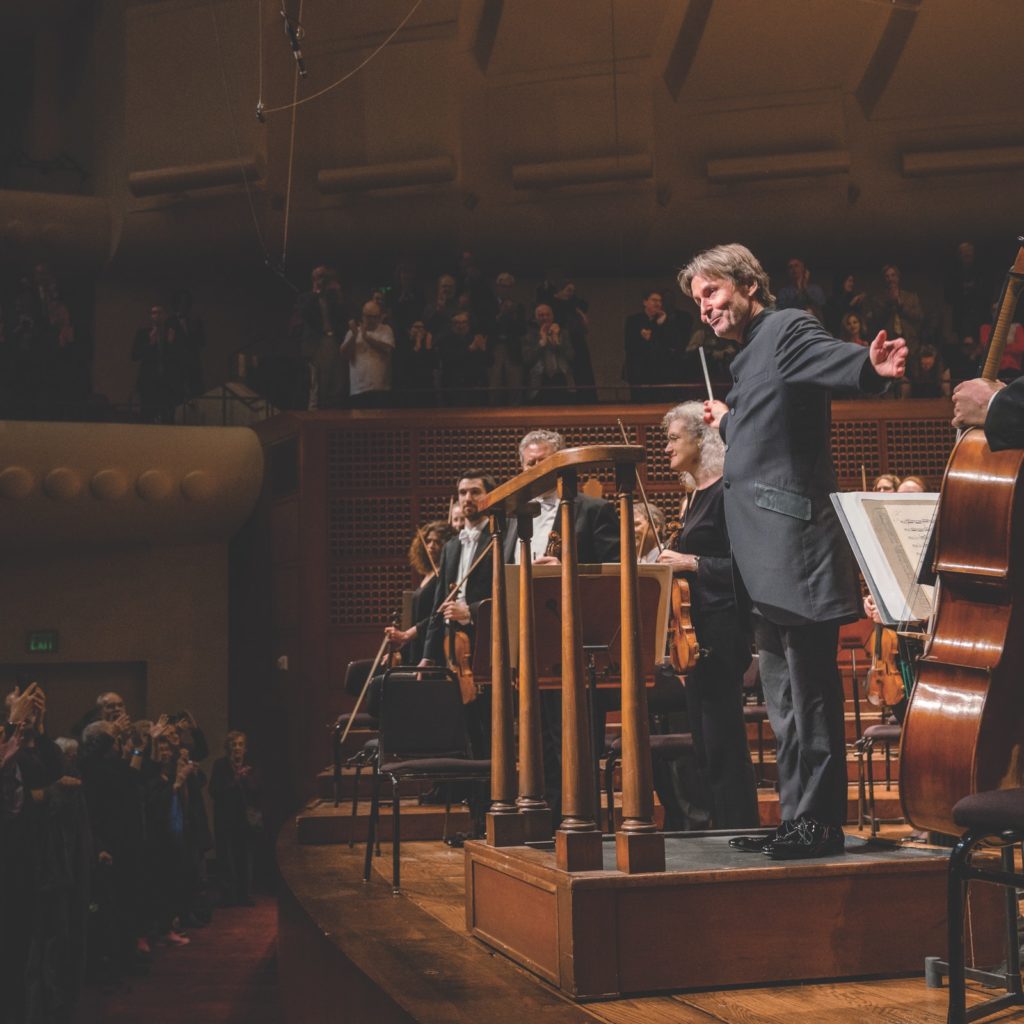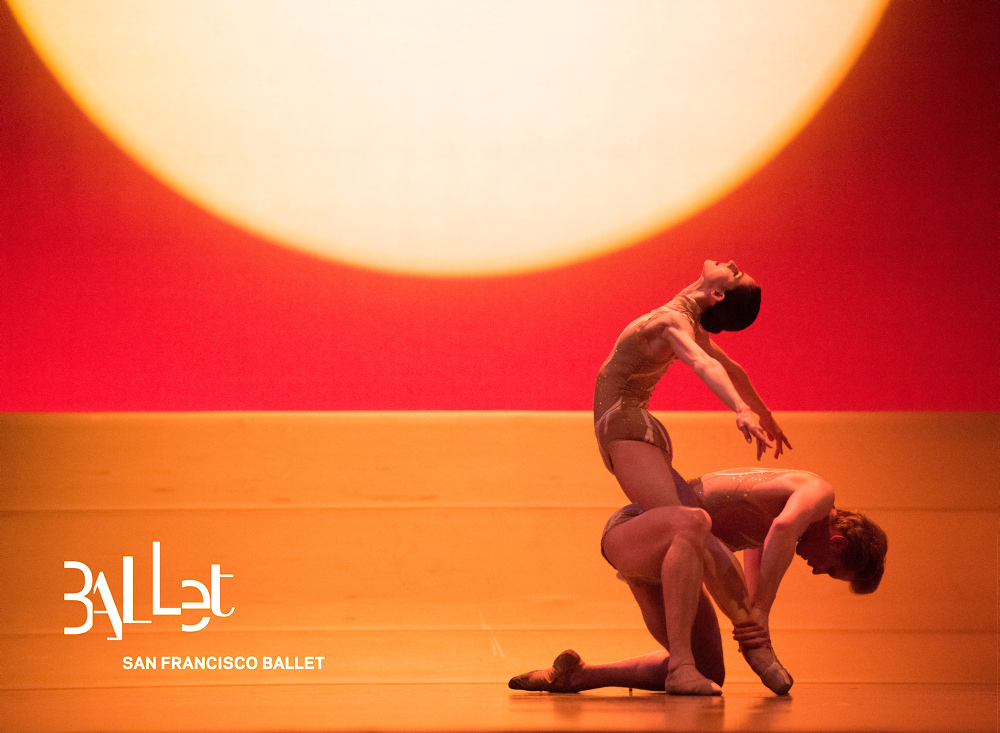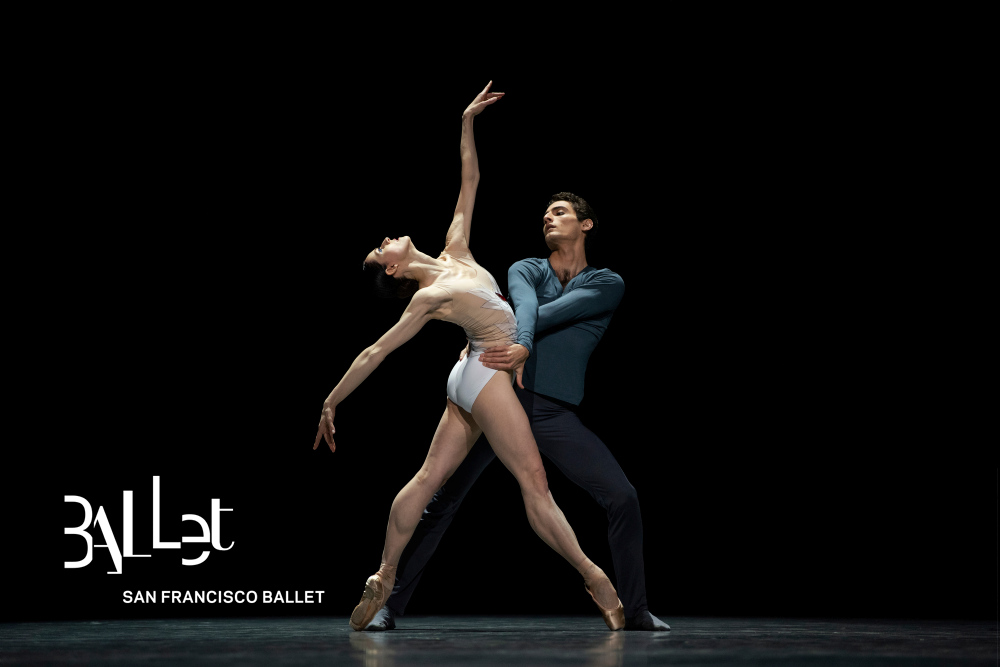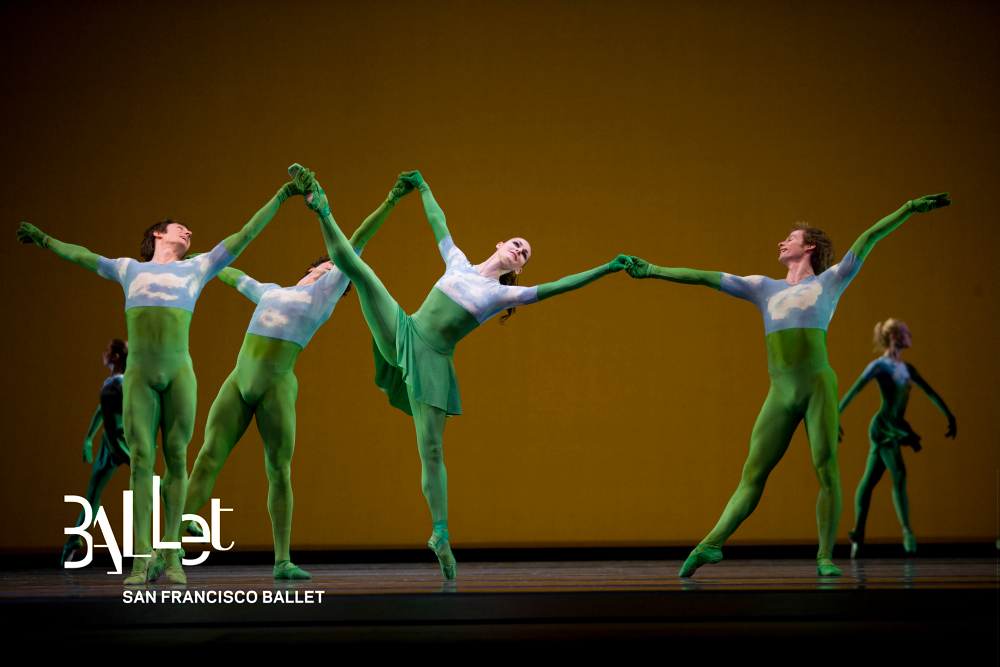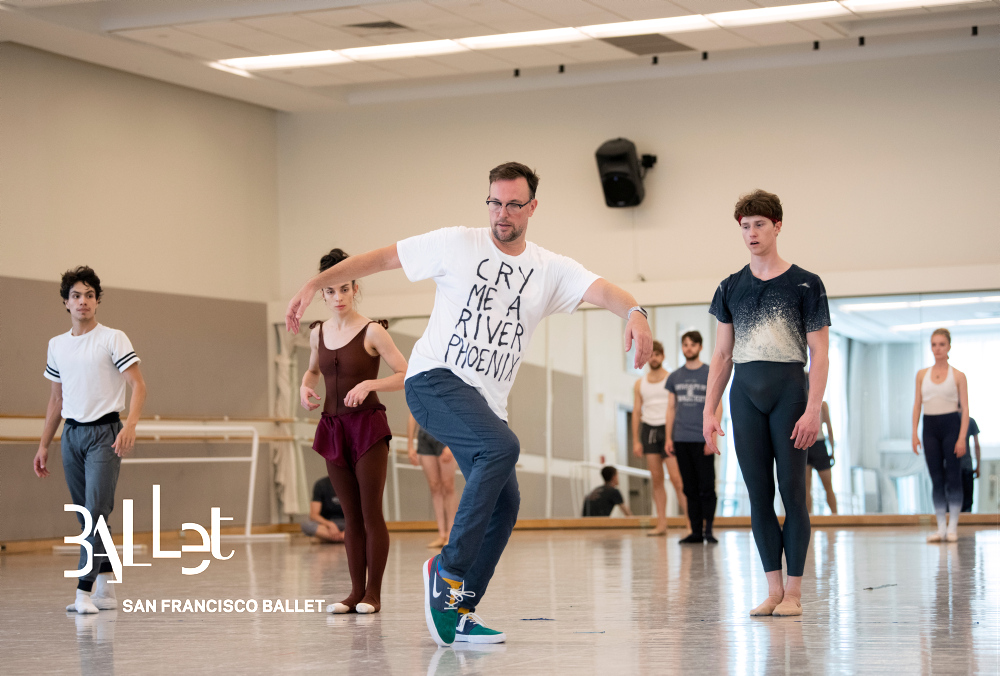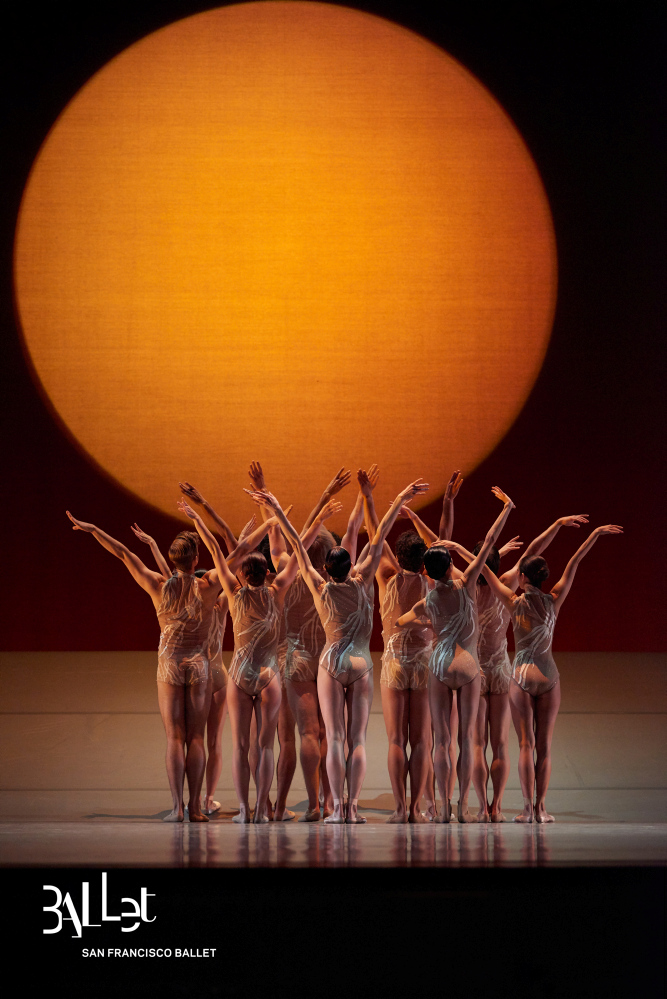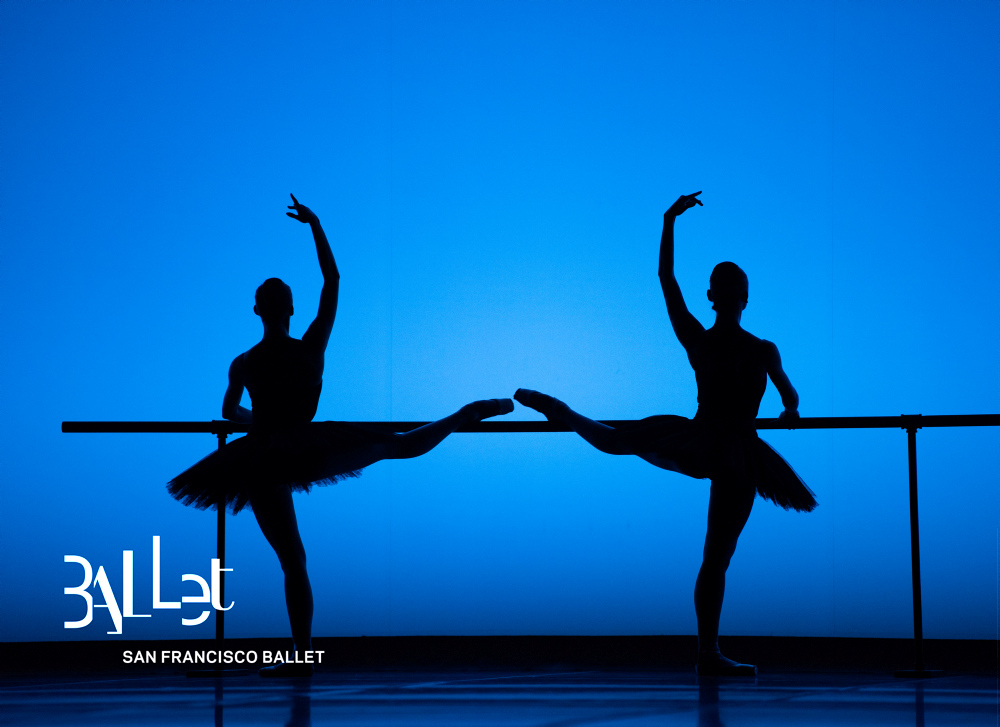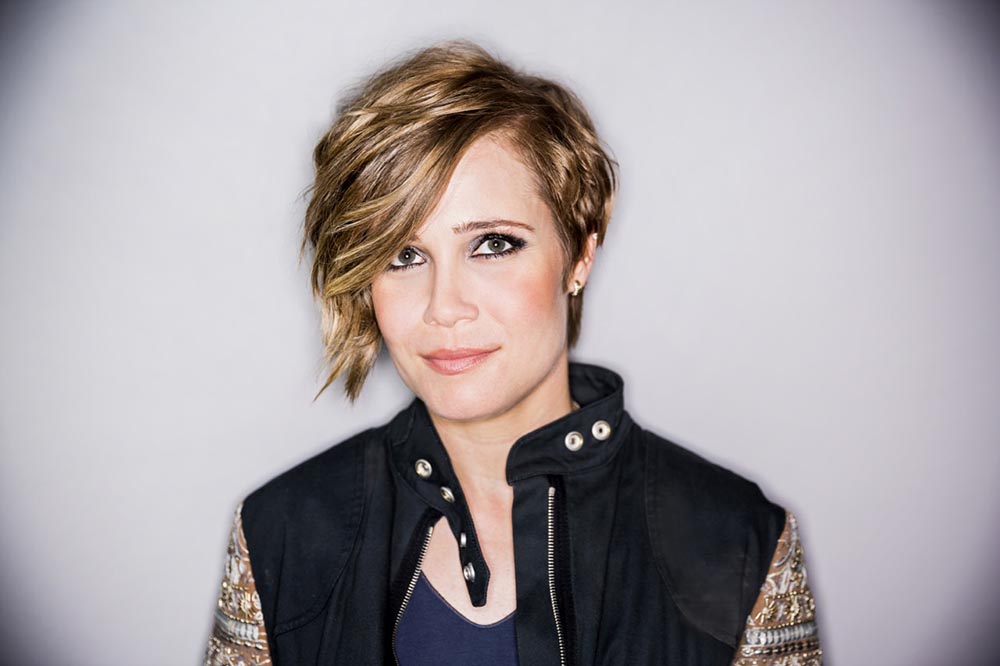
In the second part of his back-to-back concert program with the San Francisco Symphony this month, Music Director Designate Esa-Pekka Salonen leads a performance in which violin virtuoso Leila Josefowicz plays Salonen’s own Violin Concerto, which he wrote for her. Also in the program are the Beethoven Overture to King Stephen, and Carl Nielsen’s Symphony No 5.
American-Canadian violinist Leila Josefowicz is a committed and passionate advocate of contemporary music, and her enthusiasm for performing new works is well known. She gave Salonen’s Violin Concerto its premiere in 2009, since when she has been a staunch champion of the work. Ms Josefowicz has also premiered two other violin concertos written for her – one by Colin Matthews and the other by Steven Mackey. Her excellence and achievements were recognized in 2008 with a MacArthur Fellowship, and again in 2018 when she was awarded the Avery Fisher Prize.
Ms Josefowicz appeared with Sir Simon Rattle and the London Symphony Orchestra in the Orchestra’s 2019-20 season opener – she played the Colin Matthews concerto – and earlier this year appeared with Susanna Malkki and the Cleveland Orchestra in a performance of Oliver Knussen’s Violin Concerto – a work which she also played with the London Philharmonic Orchestra, conducted by Vasily Petrenko. Future concert engagements include the UK premiere of Helen Grime’s Violin Concerto with the BBC Symphony Orchestra led by Dalia Stasevska. A keen recitalist, Ms Josefowicz will also join Thomas Adès in the world premiere of his new work for violin and piano at the Fondation Louis Vuitton in Paris, and in the Japanese premiere at the Tokyo Opera City Cultural Foundation.
In addition to his forthcoming role as Music Director of the San Francisco Symphony, Esa-Pekka Salonen is also Principal Conductor and Artistic Advisor of London’s Philharmonia Orchestra, until the end of the 2020–21 season. During his tenure at the LPO, the award-winning RE-RITE and Universe of Sound installations have enabled people the world over to “step inside the Orchestra” by means of audio and video projections, and he was the driving force behind the iPad app, The Orchestra, presenting users with a new way of experiencing classical music.

Salonen wrote his Violin Concerto between June 2008 and March 2009, a work in which, he says, “I decided to cover as wide a range of expression as I could imagine over the four movements of the Concerto: from the virtuosic and flashy to the aggressive and brutal, from the meditative and static to the nostalgic and autumnal.” He speaks highly of Leila Josefowicz: “She knows no limits, she knows no fear, and she was constantly encouraging me to go to places I was not sure I would dare to go”, resulting in a concerto which he describes as being “…. as much a portrait of her as it is my more private narrative, a kind of summary of my experiences as a musician and a human being at the watershed age of 50”.
Salonen is also the Artist in Association at the Finnish National Opera and Ballet, the Conductor Laureate for the Swedish Radio Symphony Orchestra, and co-founder and a former Artistic Director of the annual Baltic Sea Festival. He recently joined the faculty of LA’s Colburn School, where he leads the Negaunee Conducting Program.
This week’s San Francisco Symphony program opens with Beethoven’s Overture to King Stephen, the incidental music to one of a trilogy of short plays, which he was commissioned to write in 1811. The plays were to be presented at the opening of a new theatre in Pest, in tribute to the Hungarian King Stephen I, to honor his efforts to Christianize the country in the 11th century.
The final work is Carl Nielsen’s Symphony No 5, which he started writing in 1920, and which premiered at the Musikforening in Copenhagen on January 15th, 1922 – a mere nine days after the composer had completed it. It was dedicated to his friends,
Esa-Pekka Salonen leads the San Francisco Symphony and guest artist Leila Josefowicz in a performance of his own Violin Concerto, and works by Beethoven and Nielsen, at Davies Symphony Hall, on February 27th, 28th and 29th. For further information and tickets, visit the San Francisco Symphony website. https://www.sfsymphony.org/Buy-Tickets/2019-20/Leila-Josefowicz-Plays-Salonen-Violin-Concerto
Information sourced from:
San Francisco Symphony program notes

